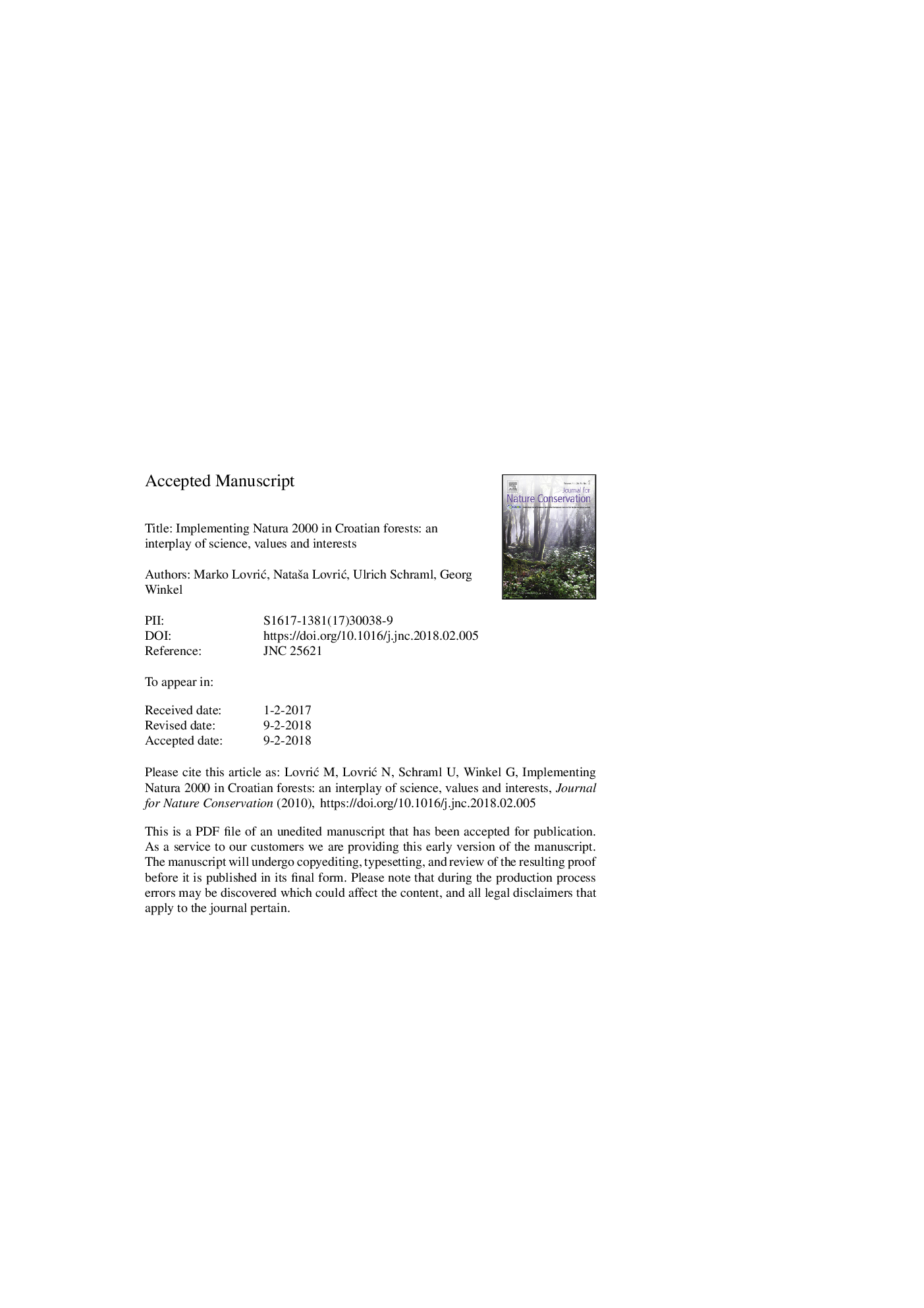| Article ID | Journal | Published Year | Pages | File Type |
|---|---|---|---|---|
| 8849255 | Journal for Nature Conservation | 2018 | 44 Pages |
Abstract
With the accession to the European Union (EU) Croatia has also joined the ecological network Natura 2000. This ambitious network of protected areas has been established across the EU based on the Birds and the Habitats Directives, for which the national designation of protection areas should be founded on scientific criteria. A review of these processes in different EU member states shows, however, that many factors have affected the designation process, such as power and influence of different interest groups and capacities of the administrations responsible for implementation. In this paper, we assess the activities of an expert working group which has prepared the forestry section of the Ordinance on Natura 2000, the basic legislative act by which the network is formally implemented in Croatia, in view of understanding which factors influenced the site designation in this country. The activities of the working group are analyzed through three theories: Advocacy Coalition Framework, Rational Choice Theory and Theory of Communicative Action. Methodologically, the analysis was based on 58 interviews with 29 the members of the working group. The results indicate that the Advocacy Coalition Framework has the greatest explanatory value for this case. Science was frequently used to substantiate claims, with forest sector experts mostly referring to sustainable forest management, and conservation actors to concepts of conservation biology. Adherence to these concepts between both sides has systematically distorted communication within the working group, which was characterized by a lack of a mutual understanding of what constitutes the appropriate scientific information for the transposition of Natura 2000 in Croatian forestry.
Keywords
Related Topics
Physical Sciences and Engineering
Earth and Planetary Sciences
Earth and Planetary Sciences (General)
Authors
Marko LovriÄ, NataÅ¡a LovriÄ, Ulrich Schraml, Georg Winkel,
